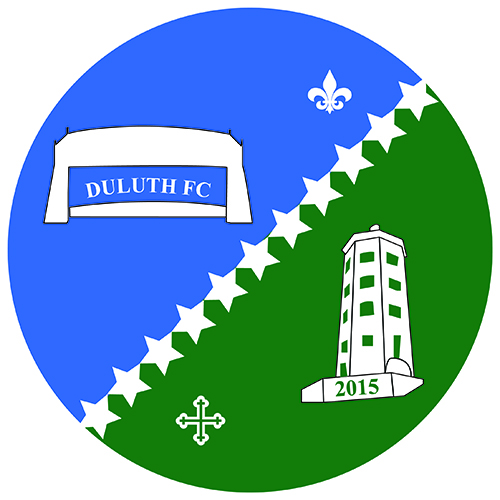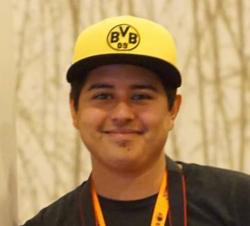Tim Sas’ Thoughts on Expansion into the NPSL
From New Jersey to California, the growth of the NPSL is hardly going unnoticed as more and more teams join this competitive U.S. Soccer 4th tier men’s soccer league — the NPSL is very close to reaching its goal of 100 teams in 100 communities.
NPSL Soccer News: With the National Premier Soccer League (NPSL) growing across all America, SoccerToday interviews the man behind one of the latest NPSL expansion clubs that joined the league for the 2017 campaign.
The club is competing in the Midwest Region’s North Conference, led by by Founders Tim and Gabriela Sas.
The BlueGreens began as a group of men playing the beautiful game in the Duluth, Minnesota.
Mr. Sas, a local priest, assembled the club in the summer of 2015 as they competed in the Duluth Amateur Soccer League (DASL). Duluth FC then joined the American Premier League (APL) for the 2016 summer season, while continuing to field a team in the DASL.
Duluth FC remains dedicated to serving the community, with all of its players and staff spending time with underprivileged children in the city. All youth 15-years-old and younger received free entry into home matches with the donation of non-perishable food items, which are then donated to local food banks.
Duluth FC sits in fourth place of the Midwest Conference’s North Division with three wins, one loss and four ties.
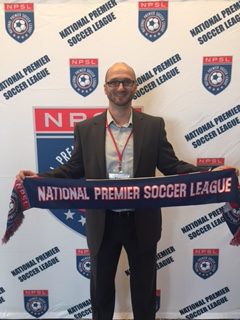
SoccerToday’s Diane Scavuzzo spoke with Sas on the upcoming season and Duluth FC’s motivation for joining the NPSL.
Diane Scavuzzo: Why did you choose the NPSL?
Tim Sas: Duluth FC played in the American Premier League – an Upper Midwest regional league – in 2016 and we were undefeated. The NPSL was the natural progression for our highly competitive amateur club. The NPSL, as a league, offers a well-established national structure of competition and it provides the best platform for professionally operated football/soccer clubs in our country.
Diane Scavuzzo: When did your team form? How are you recruiting the best players?
Tim Sas: Duluth FC started as a fun gathering of experienced yet ‘over-the-hill’ footballers in early 2015. Our club participated in our local competitive Duluth Amateur Soccer League. In 2016 we entered a team in the regional competitive American Premier League. At this level we selected players by open tryouts from among local players from the Northland Region (NE Minnesota & NW Wisconsin). We have a strong commitment to our identity with the city of Duluth and the Northland Region, thus we will continue to develop and field players from our area.
Diane Scavuzzo: Your club began its journey in the DASL and APL. What has that experience been like and why the transition to the NPSL?
Tim Sas: The DASL is an old league dating back 45 years of continuous operation as a competitive amateur league. It consists of only 10 teams but there are numerous excellent former college players and even former-professionals. Further we have 4 colleges who have men’s soccer programs in the Northland, which provides for an excellent pool of footballers. Our club will continue to field a team of young academy players who play alongside our BlueGreens Alumni.
The APL was a young organization that focused on being a regional league fielding teams in the Upper Midwestern states. It was an excellent platform of growth for our club. The APL was very well organized and managed to be a very successful league in a short time but it only offered a regional structure. The APL member clubs felt the need for a national platform. Following friendly discussions with the NPSL we agreed on terms for a merger. With the merger of the APL into the NPSL, the APL ceases to exist.
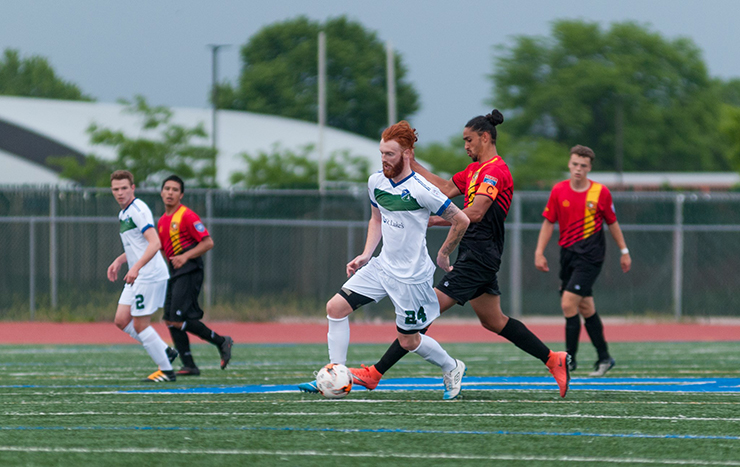
Diane Scavuzzo: When are you holding tryouts? What type of players are you looking for?
Tim Sas: We have a number of our top players returning for the 2017 season, but will announce tryouts soon to fill a competitive roster. We are looking for highly motivated and skilled players who are willing to integrate in our club culture.
Diane Scavuzzo: When did you become involved in soccer?
Tim Sas: I’ve been involved in the beautiful game my entire life. I grew up in Romania, Sweden, and Canada and have always been blessed to play with very competitive teams. I continue to play on Duluth FC’s DASL team as I age, though not always gracefully. I began coaching when my children were very young and continued to coach youth teams, pursuing some of the USSF Coaching Education steps along the way.
In 2015 I became involved in the management of the sport, by founding Duluth FC. At this point Duluth FC has grown into a great organization with about a dozen volunteers managing operations for two teams. The move to NPSL will likely involve some changes in our structure. Currently, in addition to being General Manager of Duluth FC, I am the NPSL North Conference Liaison.
Diane Scavuzzo: What is your background?
Tim Sas: First and foremost I am a father and husband. Generally, my background is in working with others to accomplish various goals that serve people and places toward improvement. More specifically however, my primary life activity is as an Orthodox Christian priest serving a vibrant community in downtown Duluth, Minnesota. Secondarily, I contract for consulting and speaking engagements on a limited variety of topics. Lastly, I spend time working to grow and expand the success of Duluth FC.
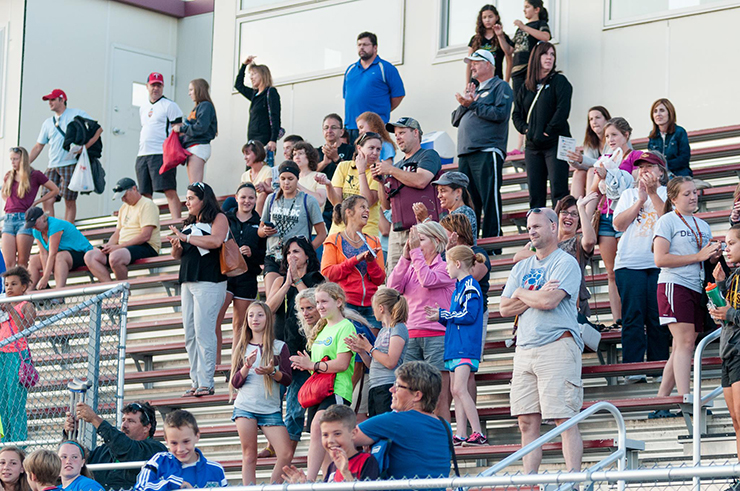
Diane Scavuzzo: How has soccer changed, if it has, since you became involved?
Tim Sas: I moved to the US as a graduate student about two decades ago. The university I attended had a soccer team playing D3 in the NCAA. After asking permission to be allowed to play with the team in practice just for fun, the coaching staff asked me to help out coaching. I was shocked to learn that there were soccer players who were not aware that the sport was called ‘football’ in most of the rest of the world. More than three quarters of those players had never attended or seen on TV a football match at a level higher than the college they played for.
That is not the case now. The sport has plenty of visibility and opportunities abound for college play and even professional clubs beyond college. NPSL clubs play before thousands of spectators and MLS clubs fill stadiums with tens of thousands of seats. TV channels transmit the best leagues in the world, and the internet provides viewing opportunities ad nauseam. Coaching has also improved dramatically.
About a dozen years ago, I attended a Coaching Training Session (along with other parent-coaches). Among nearly 30 attendees there were only two of us who had played the sport grow-ing up. Now my teenage children are coached by former college standouts. Lastly, and perhaps more importantly, local communities – institutions, businesses, and governments – think of local football/soccer clubs as part their fabric and identity, when such relationships are properly nurtured.
Diane Scavuzzo: What influences you?
Tim Sas: What influences me is perhaps quite obvious: I serve as a priest, thus my life is guided by faith in God and my interest in serving people. My role with Duluth FC is truly just another way of serving my neighbor.
Diane Scavuzzo: What surprises people about you?
Tim Sas: As to the surprise factor; it’s dual in nature. Church people are often surprised to see my play football/soccer and hear of my involvement with a minor league club. Soccer people are often surprised to hear that most days I wear a very different looking uni-form. I enjoy both surprise scenarios.
Diane Scavuzzo: If you could pick any super power, what would it be and why?
Tim Sas: Healing illnesses. Suffering abounds, so if my “Boss” would grant me the super power I ask for – I’d pick healing.
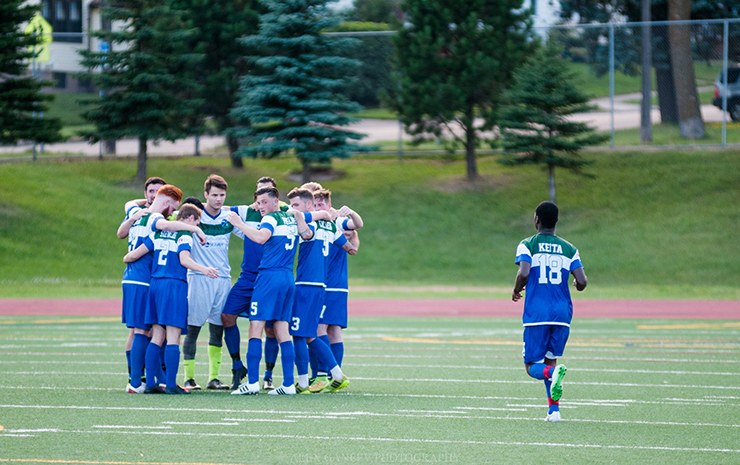
Diane Scavuzzo: Who is your favorite soccer team or player? Who do you root for behind closed doors?
Tim Sas: By nature of who I am I always cheer for my hometown team no matter how they do any particular season or match. Duluth FC is number 1 without a doubt; in MLS I support Minnesota United FC. When it comes to clubs in leagues in other countries, I’m not ultra passionate for any club, I watch for good football. Turning to national teams I cheer for USA and for my birth country Romania.
In speaking of individual footballers, I am a big fan of Italy’s Paolo Rossi, Holland’s Marco Van Basten, Romania’s George Hagi, and France’s Zinedine Zidane, save the infamous head-butt. Amongst American footballers I liked Eric Wynalda, Brian McBride, Clint Dempsey, Tim Howard, and the youngster Christian Pulisic.
Diane Scavuzzo: How do you plan on promoting your NPSL team to drive fans into seats?
Tim Sas: We will pursue typical advertising media though our biggest source of fans at the home matches has been word of mouth and our social media presence. The local TV stations have been very interested in covering us and I’m sure that will grow tremendously this coming season. We have lots of local fan support and I’m confident that will grow organically.
Diane Scavuzzo: What is your greatest challenge as a new NPSL team?
Tim Sas: Besides the obvious financial and sustainability challenges, I believe our club will have to grow in our understanding of participation in a national league structure. We will need to expand our team of volunteers on our organizational team and become even better at engaging the community as a whole.
Duluth, Minnesota is a small city that boasts a very exciting and enriching lifestyle. Opportunities for entertainment and participation activities abound. Duluthians and Northlanders also support home town sports teams. We have minor league baseball, American football, and hockey teams in our area and we have good relationships with those organizations. However, these teams participate in regional leagues only, while Duluth FC with the move to NPSL is now part of a national league. We hope that the community will be able to recognize this distinct honor and opportunity for the city and that they will support our team.
Diane Scavuzzo: NPSL has teams in approximately 80 markets across the country — is your area in need of more competition or are you concerned about future expansion?
Tim Sas: I am not at all concerned about potential expansion in our area, in fact I’d welcome it. In principle, I believe the concept of territorial rights is a negative aspect of the current sports management landscape in the USA. I believe firmly that anyone should be able to start a sports club and attempt to advance along a ladder of sporting competitiveness along with meeting “reasonable” criteria of organizational and financial conditions.
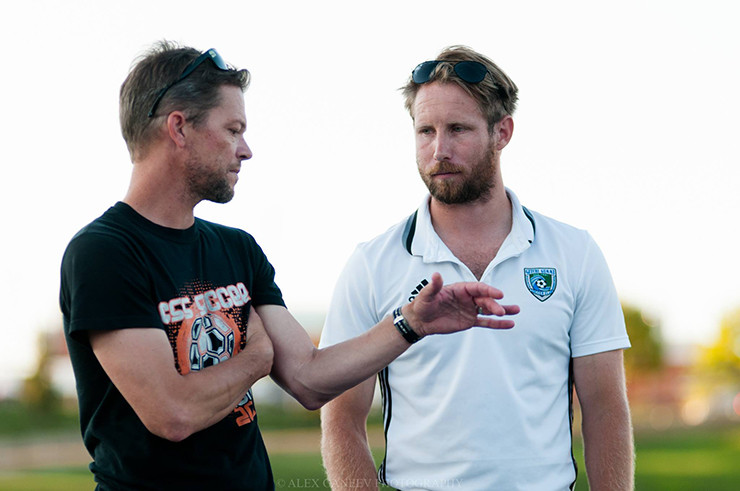
Diane Scavuzzo: Who do you think will be your greatest competition?
Tim Sas: The newly formed North Conference of the NPSL Midwest Region will have some very strong rivalries, I believe, but our BlueGreens will compete well with all those teams. We already have a great rivalry with Minnesota TwinStars FC whom we’ve played last season and we ended with 2-2 draws each time. In recent years, the TwinStars have concentrated on developing very young players but it’s not long ago that they played in the National Championship. Their coach Youssef Darbaki is a mastermind of the game, and I’m sure he’ll field a strong team this year.
Additionally, Minneapolis City SC are also a very strong club with some of the best players in our state, even some of our former players, and they’ve signed recent retirees from NASL teams. But the Crows’ strength is in their banter game on social media, so we’ll see how it goes on the pitch! Our head coach Kyle Bakas is a great thinker of the game and has done well with very little preparation last year. Additionally, we have great support and communication with all the area college and high school coaches. I believe we’ll do well in the NPSL.
Beyond our North Conference, Duluth FC being one of Minnesota’s teams is very interested in beating Milwaukee Torrent. As Minnesotans it always feel good to provide humbling opportunities to Wisconsinites. But on a serious note, I personally would love opportunities to play clubs like Detroit City FC, Chattanooga FC, Grand Rapids FC and others who have experienced great success at the NPSL level. I would love for our players to experience playing against such clubs and I would love to learn from their managers.


